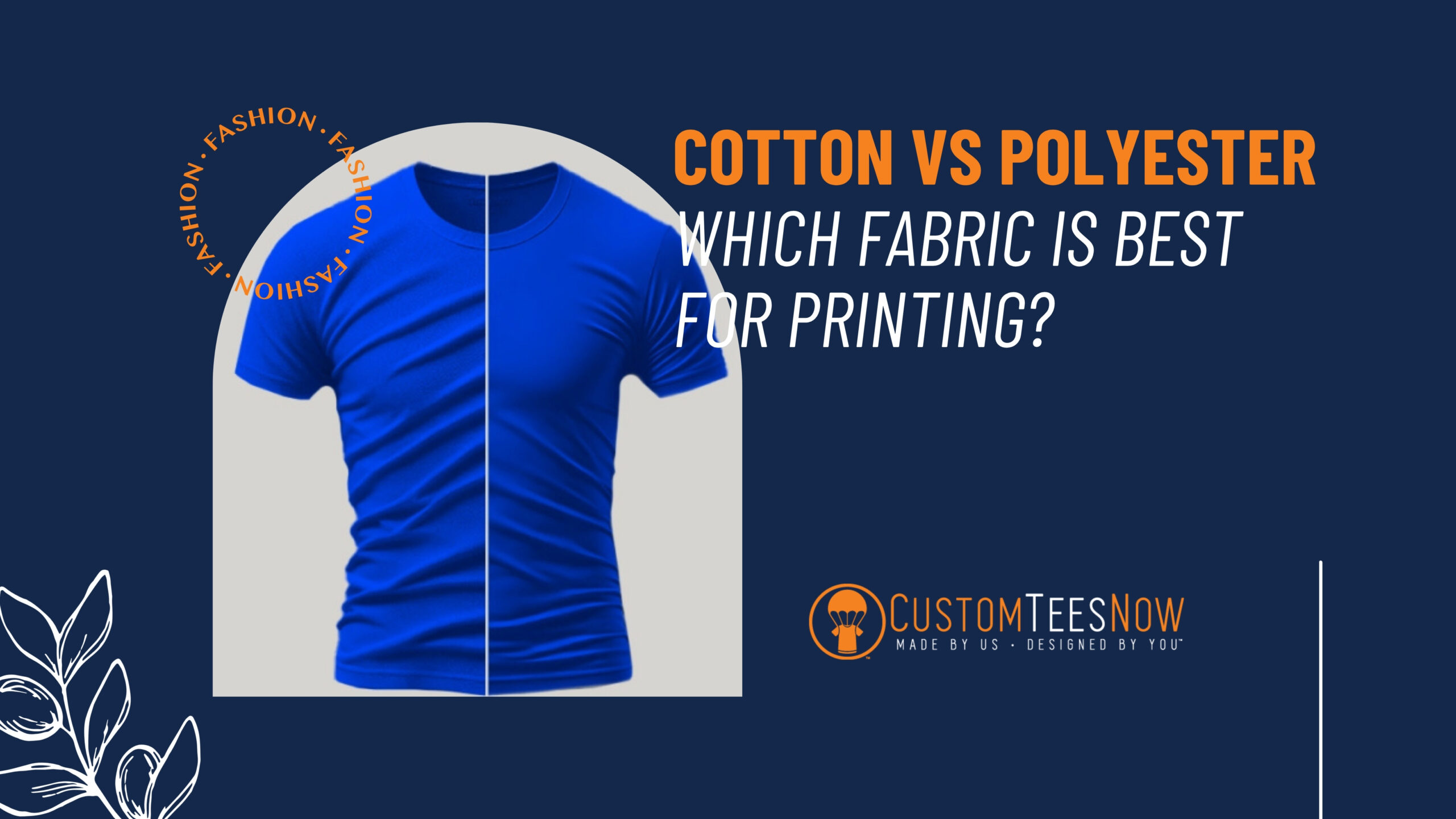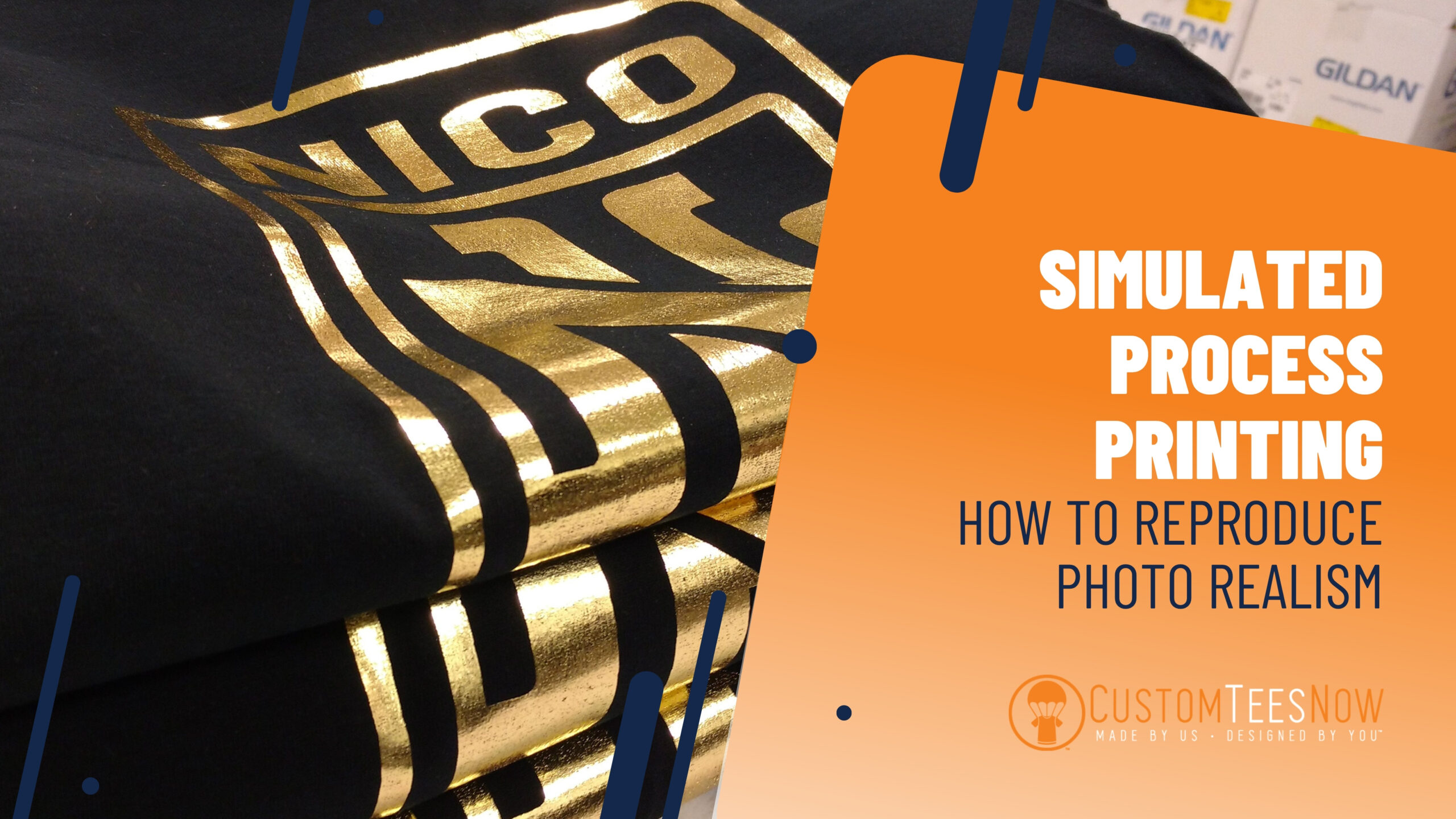
- July 2, 2025
Eco-Friendly Custom T-Shirts: Sustainable Choices for Conscious Consumers

Key Points
-
Sustainable Materials: Organic cotton, bamboo, hemp, recycled polyester, and Tencel are eco-friendly choices that reduce environmental impact.
-
Green Printing Methods: Water-based inks, discharge printing, and digital printing minimize chemical use and waste.
-
Ethical Production: Fair trade, ethical labor practices, and energy-efficient manufacturing enhance sustainability.
-
Eco-Conscious Packaging: Biodegradable and recycled packaging, along with carbon-neutral shipping, further reduce environmental footprints.
-
Certifications Matter: Look for GOTS, Oeko-Tex, Fair Trade, and Bluesign certifications to ensure sustainability and ethical standards.
-
Consumer Impact: Choosing eco-friendly T-shirts supports sustainable practices and reduces the fashion industry’s environmental harm.
Why Eco-Friendly T-Shirts Matter
The fashion industry is a major contributor to environmental issues, from pesticide-heavy cotton farming to water-intensive dyeing processes. Custom T-shirts, popular for personal expression and branding, can be made sustainably by choosing the right materials, production methods, and packaging. This guide helps conscious consumers make informed choices to support eco-friendly practices while enjoying stylish, personalized apparel.
How to Choose Sustainable T-Shirts
To select eco-friendly custom T-shirts, focus on:
-
Materials: Opt for organic or recycled fibers like organic cotton or bamboo.
-
Production: Choose brands using ethical labor and low-impact printing.
-
Certifications: Verify sustainability with certifications like GOTS or Fair Trade.
-
Packaging and Shipping: Prioritize minimal, biodegradable packaging and low-emission shipping.
By making these choices, you can reduce your environmental impact while supporting ethical brands.
Where to Start
Begin by identifying your needs—whether for personal use, business branding, or events—and research brands committed to sustainability. Companies like Custom Tees Now offer tools to design eco-friendly T-shirts with sustainable materials and practices, ensuring your custom apparel aligns with your values.
Comprehensive Guide to Eco-Friendly Custom T-Shirts
The fashion industry’s environmental toll is significant, contributing to pollution, water waste, and carbon emissions. Conventional T-shirt production often involves harmful practices like pesticide use in cotton farming, chemical-heavy dyeing, and microplastic pollution from synthetic fibers. As consumer awareness grows, eco-friendly custom T-shirts have emerged as a way to combine personal style with environmental responsibility. This guide explores sustainable materials, printing methods, production practices, packaging, and certifications, empowering conscious consumers to make informed choices.
Why Eco-Friendly T-Shirts Matter
The fashion industry produces approximately 1.2 million tons of CO2 annually, with non-organic cotton accounting for 25% of global insecticide use despite being only 3% of crops. This leads to soil degradation, water pollution, and high water consumption. Custom T-shirts, used for branding, events, or personal expression, offer an opportunity to reduce this impact. By choosing sustainable options, consumers can support ethical labor, lower carbon footprints, and promote eco-conscious practices. Eco-friendly T-shirts align style with values, making a positive statement about environmental stewardship.
Sustainable Materials for T-Shirts
The choice of material is the foundation of an eco-friendly T-shirt. Below are the most sustainable options, each with unique benefits:
-
Organic Cotton:
-
Description: Grown without synthetic pesticides or fertilizers, organic cotton uses natural farming practices like crop rotation and composting. It conserves 150 liters of water per kilo compared to conventional cotton and yields 924.27 kg/ha, promoting soil health and biodiversity.
-
Benefits: Hypoallergenic, durable due to hand-picked fibers, and biodegradable. It reduces water and chemical use significantly.
-
Considerations: Slightly more expensive than conventional cotton but widely available for custom printing.
-
Best Uses: Everyday wear, promotional T-shirts, and premium apparel.
-
-
Bamboo:
-
Description: Derived from fast-growing bamboo, this fiber requires minimal water and no pesticides. It’s processed into a soft, breathable fabric with natural antimicrobial properties.
-
Benefits: Highly renewable, soft, and ideal for sensitive skin. Biodegradable and eco-friendly.
-
Considerations: Processing can involve chemicals unless done sustainably. Check for eco-friendly production methods.
-
Best Uses: Casual T-shirts, activewear, and eco-conscious branding.
-
-
Hemp:
-
Description: Made from the hemp plant, this durable fiber grows quickly with low water and no pesticides. It offers natural UV protection.
-
Benefits: Extremely durable, breathable, and sustainable. Softens with wear and is biodegradable.
-
Considerations: Limited color options due to dyeing challenges and higher cost.
-
Best Uses: Outdoor apparel, casual T-shirts, and sustainable fashion lines.
-
-
Recycled Polyester (Repreve):
-
Description: Produced from recycled plastic bottles, reducing landfill waste and the need for virgin petroleum-based materials. Often blended with other fibers for enhanced performance.
-
Benefits: Reduces waste, versatile (wrinkle- and water-resistant), and mimics natural fabrics. Recycles approximately six plastic bottles per T-shirt.
-
Considerations: Non-biodegradable, but recycling mitigates environmental impact.
-
Best Uses: Athletic wear, sublimation printing, and blended fabrics.
-
-
Tencel (Lyocell):
-
Description: Made from beech wood pulp in a closed-loop process that recycles water and solvents. It’s 100% biodegradable and compostable.
-
Benefits: Ultra-soft, highly absorbent (50% more than cotton), and durable (42–44 cN/tex dry strength). Prevents bacterial growth.
-
Considerations: Higher cost and requires careful washing to maintain quality.
-
Best Uses: Premium T-shirts, eco-conscious apparel, and soft casual wear.
-
Material Comparison Table
|
Material |
Sustainability |
Comfort |
Durability |
Cost |
Best For |
|---|---|---|---|---|---|
|
Organic Cotton |
High (biodegradable, low water use) |
Soft, breathable |
Medium-High |
Medium |
Everyday, promotional |
|
Bamboo |
High (renewable, minimal inputs) |
Very soft, breathable |
Medium |
High |
Casual, activewear |
|
Hemp |
High (low water, no pesticides) |
Softens over time |
High |
High |
Outdoor, casual |
|
Recycled Polyester |
Medium (recycled, non-biodegradable) |
Medium, moisture-wicking |
High |
Low-Medium |
Athletic, blends |
|
Tencel |
High (closed-loop, biodegradable) |
Very soft, absorbent |
Medium-High |
High |
Premium, eco-conscious |
Eco-Friendly Printing and Dyeing Methods
Printing and dyeing significantly affect a T-shirt’s environmental footprint. Traditional methods use toxic chemicals and excessive water, but sustainable alternatives exist:
-
Water-Based Inks:
-
Made from natural pigments and water, these inks are non-toxic, biodegradable, and produce vibrant, durable prints. Companies like I Dress Myself have used them since 2007 for screen and DTG printing.
-
Benefits: Reduces chemical waste, safe for skin, and GOTS-compliant options available.
-
Best Uses: Screen printing, DTG for vibrant designs.
-
-
Discharge Printing:
-
Uses a paste to remove fabric dye, allowing ink to bond directly with fibers, creating soft, breathable prints. Avoids harmful chemicals like plastisol.
-
Benefits: Ideal for dark fabrics, eco-friendly, and comfortable.
-
Best Uses: Bold designs on dark T-shirts.
-
-
Low-Impact Dyes:
-
Designed to minimize water and chemical use, these dyes have high absorption rates, reducing waste. They use less salt and water than conventional dyes.
-
Benefits: Lower environmental impact, vibrant colors.
-
Best Uses: Large-scale dyeing for consistent results.
-
-
Digital Printing (DTG):
-
Uses less water and energy than traditional screen printing, ideal for small runs and complex designs. Often paired with water-based inks for sustainability.
-
Benefits: Minimal waste, precise designs, and quick turnaround.
-
Best Uses: Small orders, detailed graphics.
-
Sustainable Production Practices
Sustainable production goes beyond materials and printing, encompassing ethical and environmental practices:
-
Fair Trade: Ensures fair wages and safe working conditions. Ethical Tee Company’s Fair Share label passes a price premium to workers in India for a living wage.
-
Ethical Labor: Transparent supply chains, like those audited by Fairwear.org, prevent exploitation. The worker-owned Oporajeo factory in Bangladesh, used by Ethical Tee Company, empowers Rana Plaza survivors with above-minimum wages and democratic control.
-
Energy Efficiency: Using renewable energy (e.g., wind and solar) in factories reduces carbon footprints. Teemill’s supply chain, powered by solar and wind farms, exemplifies this.
-
Water Conservation: Techniques like closed-loop dyeing and water-efficient washing reduce the fashion industry’s water usage, which can exceed 2,700 liters per conventional T-shirt.
Eco-Conscious Packaging and Shipping
Packaging and shipping contribute to a T-shirt’s environmental impact. Sustainable options include:
-
Biodegradable Packaging: Recycled cardboard boxes, compostable poly bags, and paper Ocea Bags (EcoPackables) decompose naturally, unlike plastic.
-
Minimalist Packaging: Using less material, like mailer bags instead of boxes, reduces waste. EcoEnclose notes mailers are more sustainable due to lower material use.
-
Recycled Materials: Printful uses packaging with 30%–100% post-consumer recycled (PCR) plastic, minimizing virgin plastic use.
-
Carbon-Neutral Shipping: Regional fulfillment (81% of Printful’s orders are delivered locally) and carbon offsetting (Newton Print’s Carbon Balanced program) reduce emissions.
Packaging Options Table
|
Packaging Type |
Material |
Benefits |
Examples |
|---|---|---|---|
|
Compostable Poly Bags |
Plant-based |
Biodegradable, low waste |
EcoPackables |
|
Recycled Cardboard Boxes |
Recycled paper |
Durable, recyclable |
Newton Print |
|
Paper Ocea Bags |
Paper |
Compostable, lightweight |
EcoPackables |
|
PCR Plastic Mailers |
30%–100% recycled plastic |
Reduces virgin plastic use |
Printful |
Certifications and Labels
Certifications verify a T-shirt’s sustainability and ethical production. Key certifications include:
-
Global Organic Textile Standard (GOTS): Ensures organic fibers and socially responsible manufacturing. I Dress Myself holds GOTS ‘brand’ status for labeling approved runs.
-
Oeko-Tex: Certifies textiles are free from harmful substances, ensuring safety for consumers and the environment. Printful uses Oeko-Tex inks and threads.
-
Fair Trade Certified: Guarantees fair wages and safe conditions. Ethical Tee Company’s products are Fair Trade Certified.
-
Bluesign: Minimizes environmental impact across resource use, emissions, and safety. Focuses on the entire textile production process.
-
Recycled Claim Standard (RCS): Verifies at least 5% recycled content with transparent supply chains. Useful for recycled polyester T-shirts.
Certification Comparison Table
|
Certification |
Focus |
Minimum Requirement |
Benefits |
|---|---|---|---|
|
GOTS |
Organic fibers, social responsibility |
Organic content |
Ensures eco-friendly and ethical production |
|
Oeko-Tex |
Chemical safety |
No harmful substances |
Safe for skin and environment |
|
Fair Trade |
Labor conditions |
Fair wages, safe workplaces |
Supports workers’ rights |
|
Bluesign |
Environmental impact |
Resource conservation |
Comprehensive sustainability |
|
RCS |
Recycled content |
5% recycled material |
Verifies recycling claims |
Case Studies of Eco-Friendly T-Shirt Brands
These brands exemplify sustainable custom T-shirt production:
-
Printful: Uses 70%+ organic or recycled materials (organic cotton, recycled polyester) and Oeko-Tex inks. Their on-demand manufacturing reduces overproduction, and 90%–100% PCR plastic packaging minimizes waste.
-
Print Natural: Specializes in organic cotton T-shirts with water-based inks. Their carbon-negative status offsets more emissions than produced, setting a high standard.
-
Ethical Tee Company: Offers GOTS-certified organic cotton, EcoVero, and Tencel blends. Their Fairwear ‘leader’ status and worker-owned factory partnerships ensure ethical production.
-
tentree: Plants ten trees per item sold, uses low-impact materials, and prioritizes fair working conditions. Over 65 million trees planted to date.
-
FRANC: Employs lower-impact materials, traces its supply chain, and avoids animal products, earning a “Good” rating for sustainability.
How to Choose Eco-Friendly Custom T-Shirts
To make sustainable choices, follow these steps:
-
Check Materials: Prioritize organic cotton, bamboo, hemp, recycled polyester, or Tencel for low environmental impact.
-
Verify Printing Methods: Opt for water-based inks or digital printing to reduce chemical and water use.
-
Look for Certifications: GOTS, Oeko-Tex, Fair Trade, or Bluesign labels ensure credibility.
-
Assess Production Practices: Support brands with fair trade, ethical labor, and energy-efficient manufacturing.
-
Evaluate Packaging and Shipping: Choose companies using biodegradable or recycled packaging and carbon-neutral shipping.
Conclusion
Eco-friendly custom T-shirts allow consumers to express themselves while supporting sustainable practices. By choosing materials like organic cotton or Tencel, opting for eco-friendly printing, and supporting ethical brands, you can reduce the fashion industry’s environmental impact. Certifications like GOTS and Fair Trade provide assurance, while innovative packaging and shipping practices further enhance sustainability. Companies like Custom Tees Now offer tools to design eco-conscious T-shirts, making it easy to align your values with your wardrobe. Start your sustainable journey today and make a positive impact with every T-shirt.



